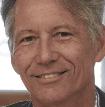16 February 2020
None of our elites can articulate a politically navigable plan to grow the economy. President Ramaphosa’s SONA speech and initial support for COSATU’s unhelpful ideas regarding Eskom and infrastructure spending show they have stopped trying.
Successful infrastructure investing must be guided by a commercially astute growth plan. If, instead, infrastructure investing is substituted for a well-conceived plan, decay will deepen. In the mid 90s it seemed reasonable that Telkom should levy a surcharge on existing residential customers to fund landline infrastructure for disadvantaged areas. Yet Telkom couldn’t accommodate SA’s political transition while ignoring its sector being globally reinvented.
Strategic international investors and becoming a listed company upgraded Telkom’s accountability, innovativeness and competitiveness. Transitioning from landlines to cellular was greatly aided by investor inputs. As creating competition for national electricity distribution requires prohibitively expensive duplications, Eskom’s investor accountability is more crucial still.
The ANC’s economic stewardship is dreadful. Their hold on power flows from policies making a majority dependent on government alongside spurring voter fears that a change in government risks vital payments ceasing. By adopting Cosatu’s thinking the ANC would double down on eluding accountability to the detriment of the economy. Cosatu’s approach would loadshed the prudential influence of investors to further postpone urgently required reforms.
The ANC’s over prioritising redistribution has foreclosed growth prospects while inciting systemic patronage and corruption. Their policies and strategies leave many millions of South Africans dependent on government largesse which creates a massive non-productive funding requirement - while regulations discourage commercial employment.
Eskom’s woes distract from the underlying political blockages. President Ramaphosa teaming up with business leaders to attract investment commitments didn’t work for the same reason none of SA’s leaders can produce a workable growth plan. SA’s domestic purchasing power is woefully insufficient to fuel sustained rapid growth.
Meanwhile, over prioritising redistribution is inducing long-term stagnation. Just as scope to increase tax revenues by increasing VAT is nearly exhausted, mobilising capital to compete with incumbent companies which serve local consumers can do little to increase jobs and growth. Only investments which increase exports can spur adequate growth. This, however, requires wholesale policy shifts inimical to the ANC's political positioning.
Ramaphosa lacks sufficient support within his party to drive meaningful reforms. Cosatu’s preferred path would temporarily reduce external funding requirements while tempering financial pressures for necessary policy shifts - notwithstanding the expected loss of Moody’s investment grade rating. While Cosatu’s path could offer Ramaphosa time to outmanoeuvre his ANC adversaries, postponing reforms compounds profound economic risks.
The ANC’s political strategy of creating massive dependence on government was never economically sustainable. Policies which trigger social grants in lieu of promoting healthy job growth require continued high volume access to capital amid declining debt servicing capacity. If government borrows R1 billion, it needs to be able to create nearly R100 million of value each year while being able to repay the principal at maturity.
That Cosatu’s proposals received serious considerations shows that our elite decision makers’ response to the unsustainability of funding both dysfunctional SOEs and compounding social grants is to play for time. This surges the likelihood that structural reforms will have to wait until access to credit markets has been exhausted. Cosatu’s plan might have postponed this until the start of campaigning for the 2024 elections.
This could suit lenders like the IMF. If a debt restructuring and fundamental reforms are negotiated leading up to an election that produces a coalition government, inducing electoral loyalty through creating dependencies could give way to a growth focus. Dour scenarios could however, unfold in the interim.
Lenders generally prefer debt write-downs accompanied by operational restructurings to liquidations. While liquidating Eskom is not an option, Cosatu also wants to remove the restructuring option. This spotlights the reason underlying Eskom’s woes: politics provoking destructive policies. Overly prioritising redistribution has entrenched dependencies in place of a growth path leading to broad prosperity.
Sustained high growth is only possible through prioritising competitiveness to achieve intense global integration. Instead, widespread patronage and dependency networks spur unsustainable funding requirements. Politically motivated financial engineering designed to buy time will further erode SA’s competitiveness and the nation’s balance sheet.
Phone utilities transitioned from voice to data. Auto manufacturers are transitioning from internal combustion engines to electric propulsion. Cosatu prefers writing-off debt to pursuing global competitiveness. They don’t appreciate how prudential investing principles are central to extreme poverty being nearly eradicated in all other regions.
The powers of prudential investing are now being employed globally to outpace governments’ response to climate change challenges. Conversely, Cosatu has seduced ANC elites into believing they should double down on their indulgence of failed ideologies, isolationist tendencies and state control.
The electorate cannot freely consent if they are not truly free. Yet it's not just that a majority of South Africans are poor. Their electoral support is coerced by policies condemning them to poverty and dependence on government.
The only way out it is for government to adopt a growth plan which is commercially robust, broadly inclusive, and politically viable. Consideration of Cosatu’s proposals plus Ramaphosa’s SONA speech make clear that no such plan will surface any time soon.
Shawn Hagedorn is an independent strategy adviser shawn-hagedorn.com

